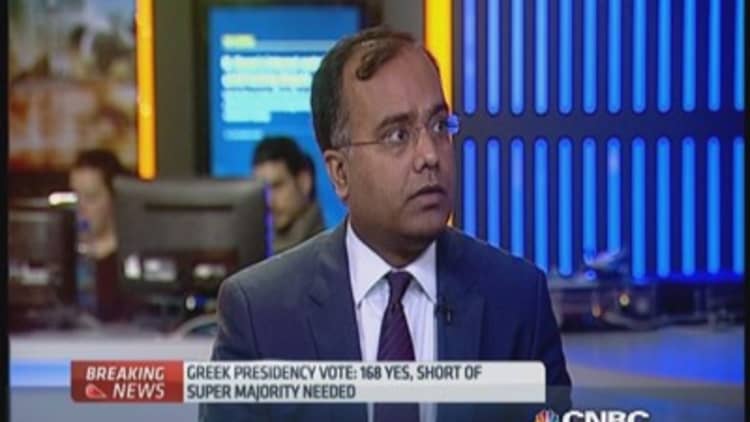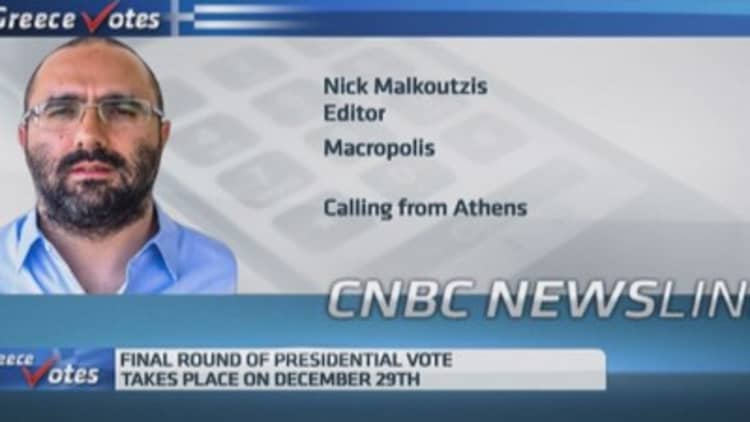
Greece's financial markets' resumed their rocky ride on Tuesday as lawmakers failed again to approve the prime minister's choice of president—a result that could send the country back to the polls and into an uncertain future in the euro.
The parliamentary vote Tuesday follows an inconclusive first round last week which saw the prime minister's favored candidate, Stavros Dimas, failing to get enough votes.
On Tuesday Dimas also fell short, obtaining just 168 votes. Voting will now go to a third round at the end of the month—and if he fails again, general elections will be called.
"This could well go to three rounds and if the required amount of votes are not secured, then snap elections will ensue which brings the risk of a government of a far less reformist agenda," said Simon Smith, chief economist at FxPro, in a research note out on Tuesday.
The political uncertainty caused by the shock presidential elections and the heightened doubts over future economic policy has called Greek financial markets to nosedive this month.
Prime Minister Antonis Samaras called the snap presidential election as a test of the power of his coalition government. With a general election looking more and more likely, investors are concerned that the leftwing Syriza party, which has pledged to renegotiate the terms of the country's 240 billion euro ($294 billion) bailout, could secure power.
On Tuesday, the Athens benchmark stock exchange closed down around 1.7 percent, having pared some losses after the results from the second round of voting were released. The index has fallen around 11 percent since the start of December.
Greek bond yields rose by around 1.4 percent to 8.47 percent on Tuesday.

In an attempt to persuade moderate left-wing politicians and independents to vote for Dimas, Samaras promised on Sunday to hold an early general election in 2015, although his term is not set to end until mid-2016.
Read MoreGreek PM offers 2015 election once bailout complete
It is uncertain however whether this will prove sufficient to secure the eventual instalment of Dimas—particularly as Samaras's standing has been undermined by allegations of bribery and corruption regarding the presidential election.
"While Samaras' initiative slightly increases the chances for the government to elect a new president, the PM's offer has come too late (and only after a major corruption scandal) to succeed, meaning that a collapse of the government following a failed presidential election remains the most likely scenario," said Wolfango Piccoli, the managing director of Teneo Intelligence in a note on Monday.

